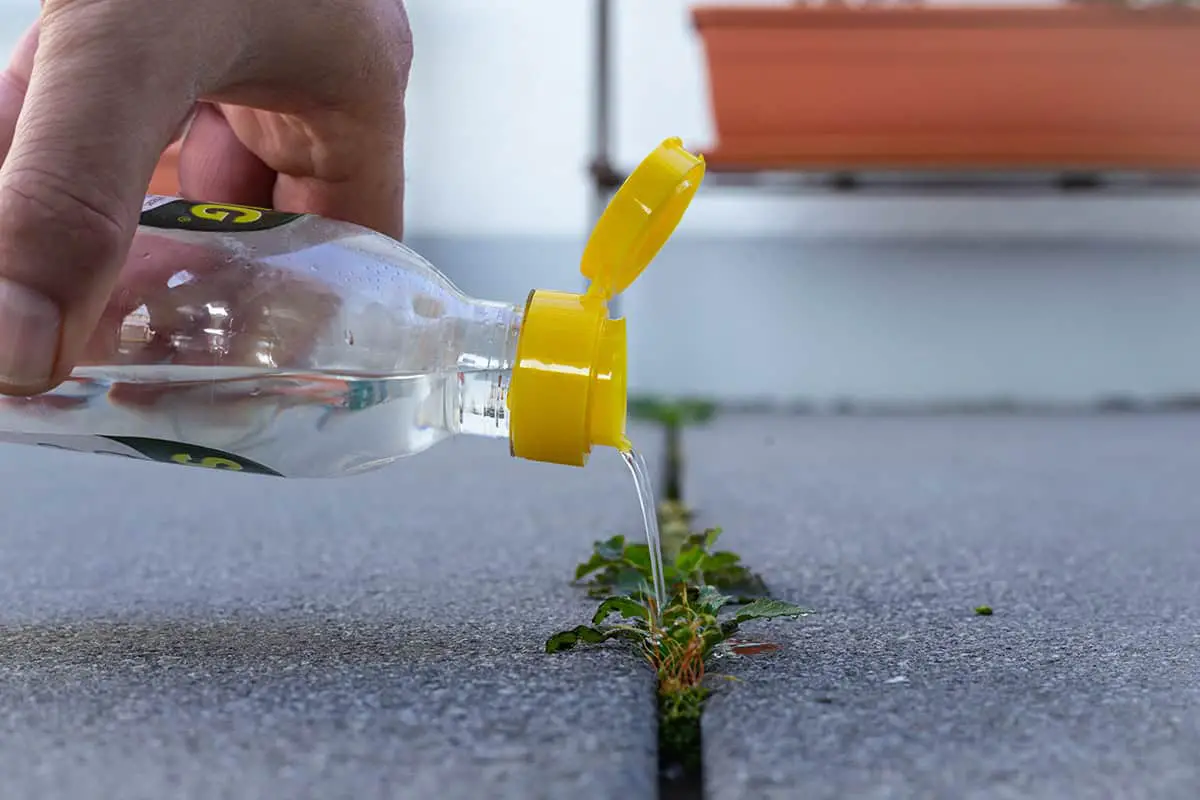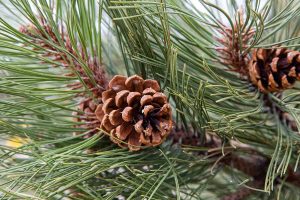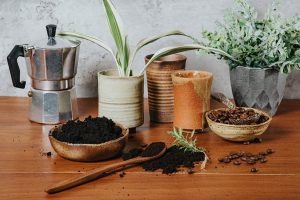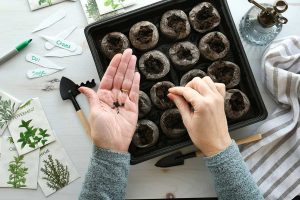You’re tending to your garden, and you notice weeds sprouting between your favorite flowers, ants invading your vegetable patch, and your garden tools looking worse for wear. Instead of reaching for a shelf full of different products, what if one common household item could handle all these issues?
Vinegar is a versatile solution that can tackle many gardening challenges. By reading this post, you’ll discover practical ways to use vinegar in your garden, making your gardening tasks easier and more effective.
Table of Contents
Weed Killer
One of the easiest ways to use vinegar in your garden is by utilizing it as a natural weed killer. Acetic acid, the main ingredient in vinegar, breaks down the cell membranes of plant foliage, causing rapid desiccation and death. A study at Purdue University found that 5-10% concentrations of vinegar can effectively kill weeds within two weeks of their emergence.
To make your vinegar weed killer, simply mix equal parts of white vinegar with water. At a 5% concentration, typical household vinegar should work. For tougher weeds, use a higher concentration of vinegar or consider purchasing herbicidal vinegar with 10-20% acetic acid.
You might want to add a few drops of dish soap to enhance the vinegar’s effectiveness when applying it to weeds. Using a spray bottle, apply the mixture directly onto the unwanted plants, taking care not to spray your desired plants.
Ant Deterrent
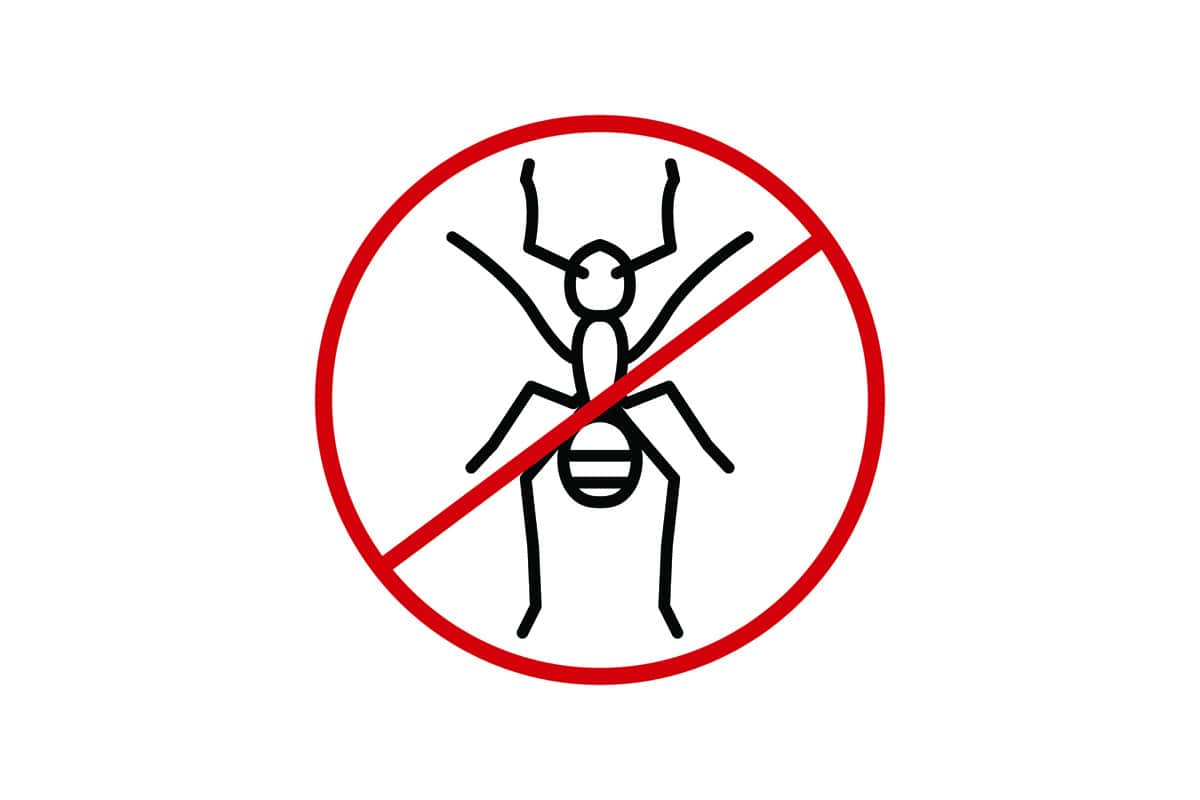
Dealing with ants in your garden can be a frustrating experience. Fortunately, vinegar is a natural and effective solution to deter ants. Mixing equal parts water and white vinegar in a spray bottle can help create a simple ant deterrent.
Spray the solution directly onto the ants’ trails, as well as around the base of plants you want to protect. Keep in mind that this mixture can also harm your plants if applied directly to them, so be cautious during application. Reapply the solution as needed, especially after rain or watering your garden.
While vinegar alone might not eliminate the entire ant colony, it does disrupt their scent trails and makes it more difficult for ants to find their way back to your garden. For a more comprehensive approach, consider using fire ant baits in combination with vinegar to achieve better results.
Natural Fungicide
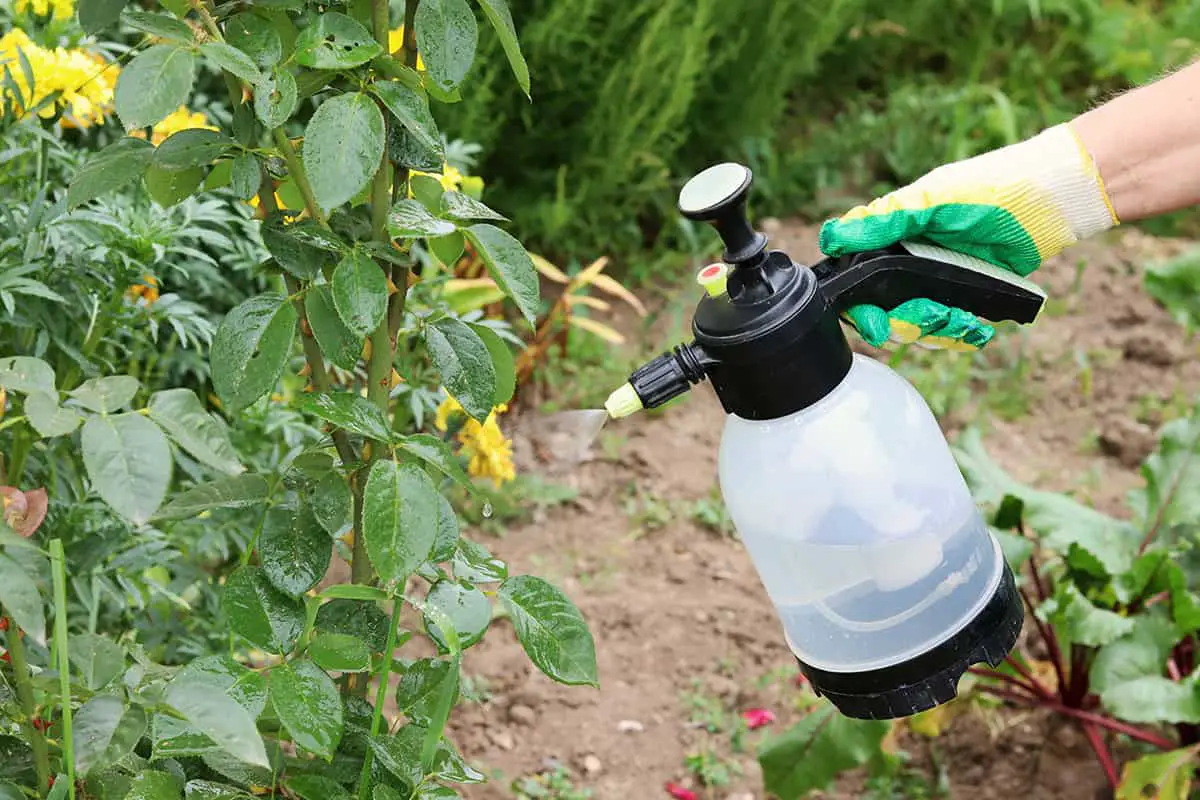
If you’re searching for a natural fungicide for your garden, vinegar is a great option. With its acetic acid content, vinegar can effectively combat fungal diseases affecting plants. Just make sure to use herbicidal vinegar, which has a higher concentration of acetic acid (10-20%) compared to regular household vinegar (5%).
To use vinegar as a fungicide, you need to create a mixture. Combine one part herbicidal vinegar with three parts water for a balanced solution. Be cautious when using vinegar on your plants, as excessive amounts can damage them. It’s recommended to test the solution on a small area of the plant first and wait for 24 hours to observe any adverse effects.
When applying the vinegar solution to your plants, make sure you target the affected areas. Spray the mixture onto the infected leaves, stems, and fruits. You may repeat the treatment every seven days, but always be cautious not to overuse the solution. Keep in mind that vinegar is non-selective, which means it can harm both harmful fungi and beneficial microbes.
Soil pH Lowering
As a gardener, you know that some plants prefer acidic soil conditions. If you find your soil’s pH level is too high, vinegar can assist in lowering it. It is important to test your soil pH before making adjustments to avoid overcorrecting.
You can create a vinegar solution by mixing one cup of white vinegar with one gallon of water. This mixture can then be applied to the soil around your plants, ensuring the roots receive the solution evenly. Take care not to use too much vinegar, as it can damage your plants.
In addition to reducing soil pH, vinegar can enhance the availability of nutrients for your plants. A proper pH range in your garden promotes effective nutrient absorption, which leads to healthier, more vigorous plant growth.
Clean Garden Tools
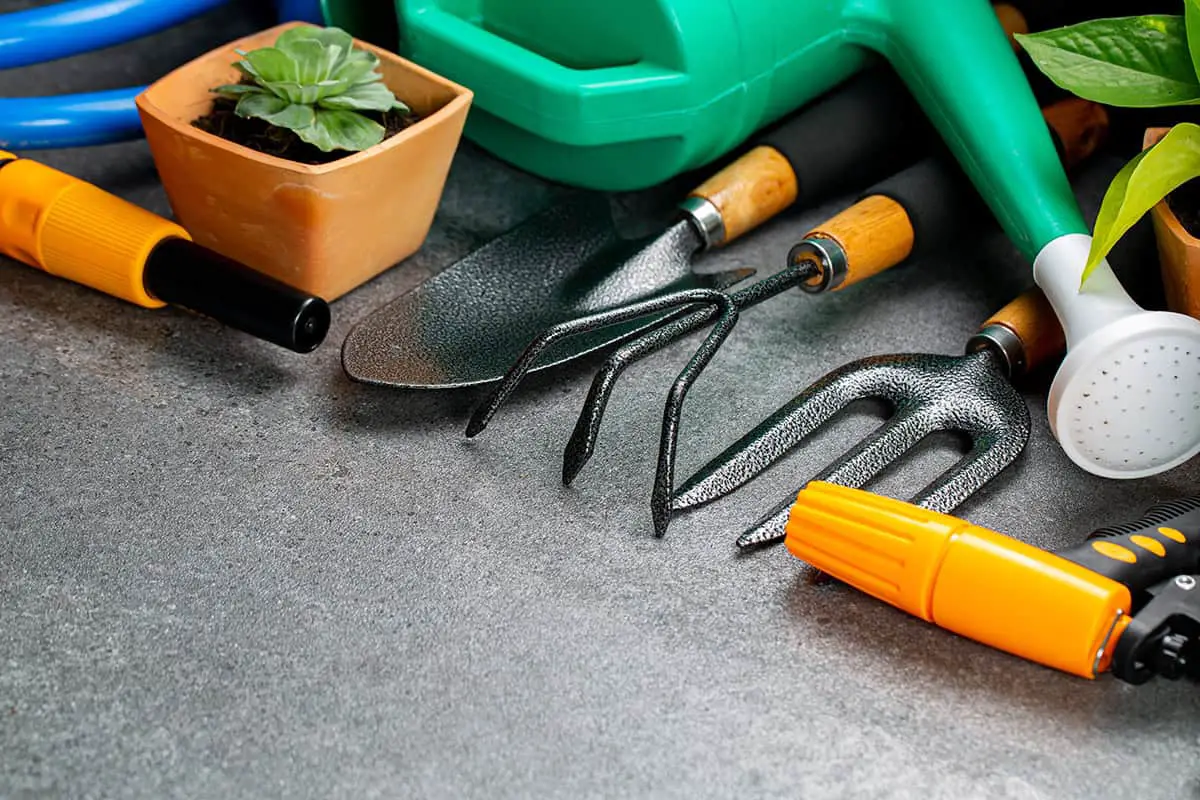
Vinegar is not only an effective cleaning agent for your home but also a great way to clean your garden tools. The acetic acid in vinegar acts as a natural disinfectant that helps remove dirt, rust, and bacteria, prolonging the life of your tools.
To begin, fill a bucket with equal parts of water and white distilled vinegar. Soak your garden tools in this mixture for about 30 minutes to remove dirt and grime. For tools with stubborn rust, keep them soaked overnight in pure vinegar. After soaking, scrub the tools thoroughly with a stiff brush to remove any remaining debris and rust.
Once the cleaning process is complete, dry your tools thoroughly with a clean cloth to prevent further rusting. To add an extra protective layer, apply a few drops of mineral oil on the tools’ surfaces and rub them evenly, this helps prevent rust and corrosion.
In addition to cleaning your tools, vinegar can also help disinfect them. You can create a disinfectant solution by mixing one part vinegar and four parts water. Dip your tools into this mixture for a minute or two, making sure each surface is fully covered. This step is particularly important when dealing with diseased plants or preventing the spread of pathogens.
Flower Enhancer
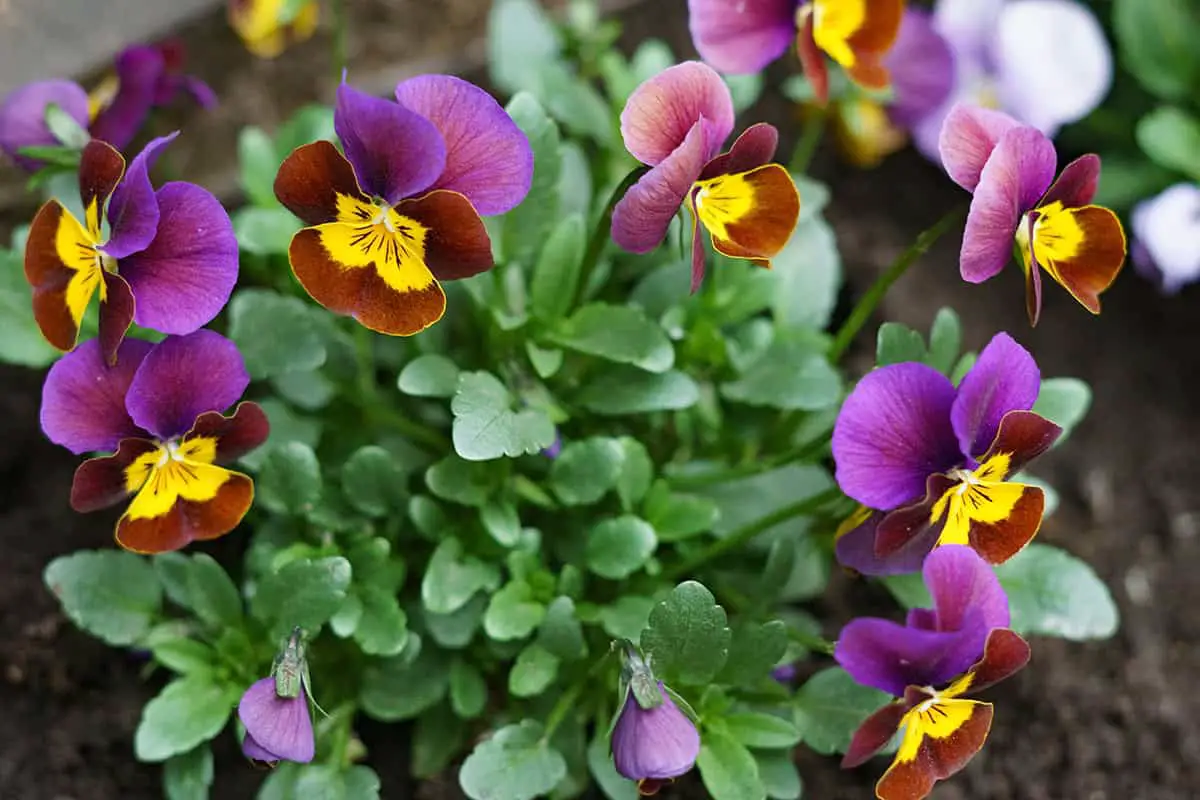
Vinegar can help your flowers thrive. Mixing one teaspoon of white vinegar and one teaspoon of sugar with a quart of water creates a horticultural-friendly solution that enhances their growth. Pour the mixture into your vase to support cut flowers or dilute it for use in your garden as an alternative to store-bought chemical fertilizers.
Beyond enhancing growth, vinegar also assists in preventing flowers from wilting. If you notice wilting leaves or petals, simply spray the vinegar solution directly onto the affected areas. You may observe a refreshed and more robust appearance on your plants. The acetic acid in vinegar helps regulate the water intake, reducing wilting.
Another application of vinegar in the garden is to remove mineral deposits from clay pots. Soak the pots in a solution made up of one part vinegar and three parts water. Let them sit for 30-45 minutes before gently scrubbing away the mineral deposits using a brush.
Seed Germination Aid
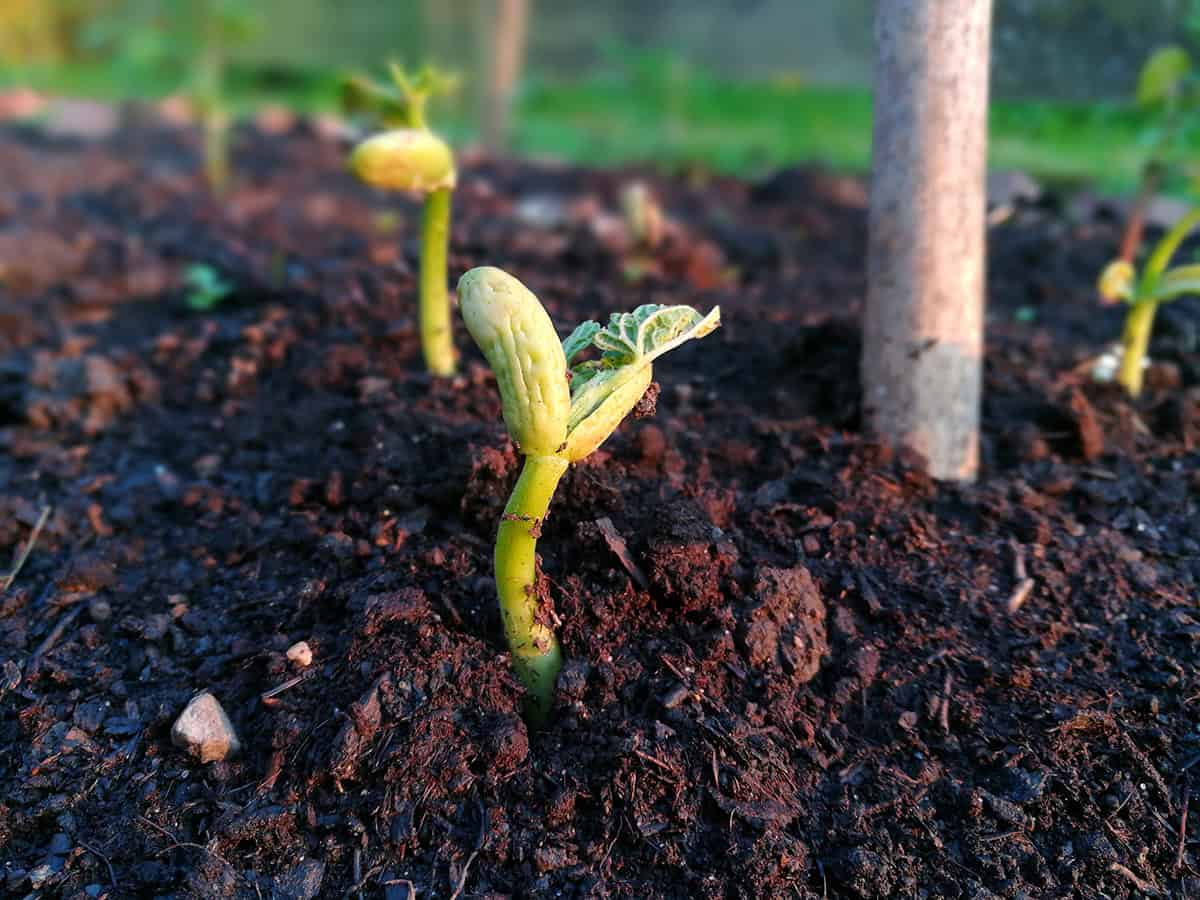
Using vinegar in the garden can provide several benefits, including its potential to aid in seed germination. Gardeners often look for ways to improve the germination process and enhance plant growth. One such method involves using vinegar, as it can help create the ideal environment for seeds to germinate. So, let’s discuss how vinegar plays a crucial role in seed germination.
You might be wondering how vinegar can be useful in seed germination. The acetic acid present in vinegar is known to weaken the hard outer coating of the seed, making it easier for the seed to absorb water and nutrients. This leads to quicker and more consistent germination. However, you must use vinegar in the correct proportions to ensure that you don’t harm the seeds.
Balancing the pH levels is another advantage of using vinegar. As soil temperature affects seed germination, you need to have the right soil conditions for seeds to thrive. Vinegar can help adjust the pH level of the soil, creating a favorable environment for seed germination and growth. But, remember to test your soil first as vinegar may only be needed for alkaline soils.
Lastly, vinegar can act as a weed control measure during the germination process. Pre-treating the soil with vinegar can eliminate weeds and prevent them from competing with your seedlings for vital nutrients.
Calcium Supplement
Adding vinegar to your garden can be beneficial as you can create a water-soluble calcium supplement. This is crucial for plants that require a good amount of calcium, like tomatoes, to grow and to prevent disorders like blossom end rot. Calcium plays a vital role in maintaining the structural integrity of the cell walls.
To make a water-soluble calcium (WCA) supplement, you will need eggshells and vinegar. First, crush the eggshells into a powder. This increases their surface area, making it easier for the vinegar to interact with the calcium carbonate in the eggshells. Next, put the eggshell powder in a jar and pour vinegar over it. The vinegar will dissolve the calcium carbonate, and the mixture will start bubbling. After a few days, the bubbling will stop, and your calcium supplement will be ready.
To use this calcium supplement in your garden, you should dilute it with water before applying it to your plants. The ideal ratio for dilution is 1 part WCA to 1000 parts water. It is important to regularly monitor the calcium levels in your soil and adjust the application of your homemade calcium supplement accordingly.
It’s essential to maintain consistent soil moisture when growing calcium-rich plants. An irrigation system can be used to provide a constant water supply and prevent your plants from experiencing calcium deficiency.
Pathway Cleaner
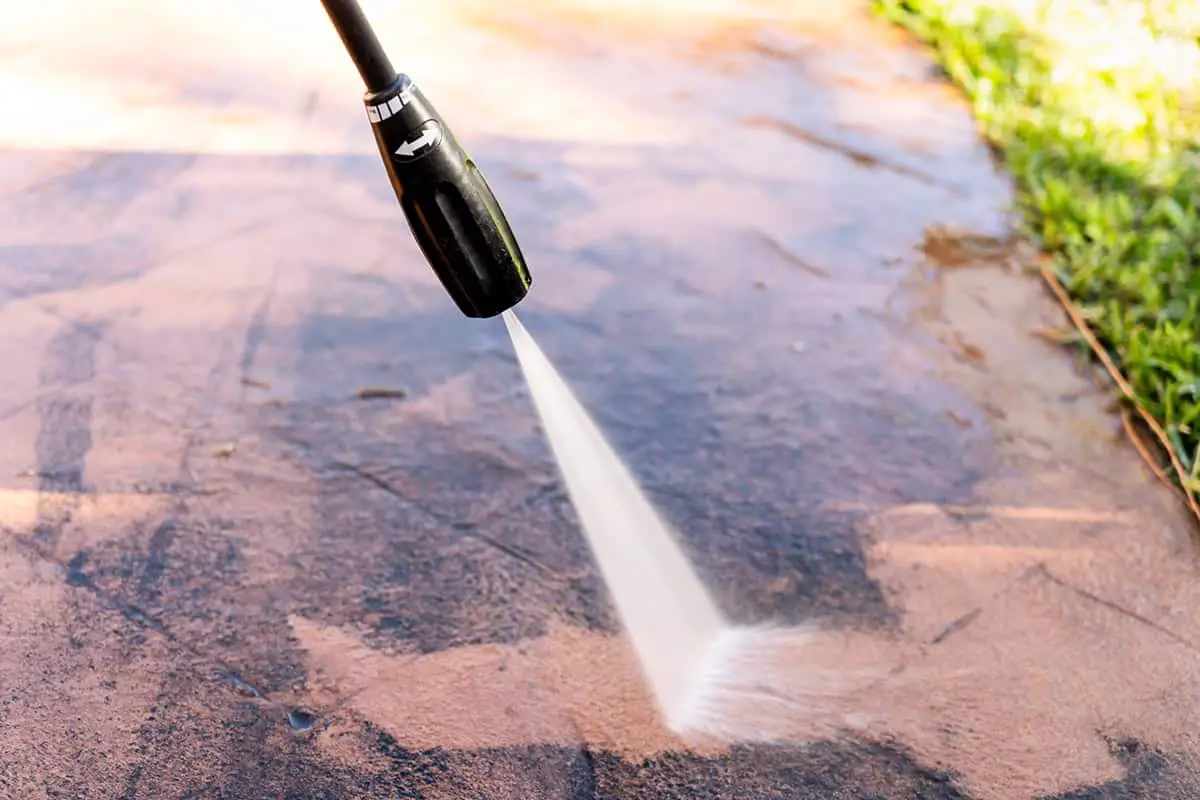
Vinegar can be a useful addition to your gardening toolkit as a natural pathway cleaner. When you mix it with water, you create a powerful solution to combat moss and algae on your pavement or gravel pathways. You’ll see results quickly, without resorting to harsh chemical treatments. Oregon State University Extension suggests a vinegar treatment to eliminate moss efficiently.
Begin by protecting your desirable plants, as the vinegar can also harm them. When you’re ready to start, pour a mixture of equal parts vinegar and water into a spray bottle. On a dry, sunny day, generously spray the solution onto the mossy or algae-covered surfaces. The acetic acid in vinegar acts as a desiccant, breaking down plant tissue and effectively eliminating moss and algae.
After a short waiting period of about 15 minutes, the treated areas will visibly show signs of drying and desiccation. Using a broom or brush, gently scrub away the dead moss and rinse the area with water. You’ll notice an immediate improvement in the appearance of your pathways.
Keep in mind, that using vinegar can have some downsides. For instance, horticultural vinegar is more potent than household vinegar, and it might damage surfaces or harm your skin if not handled with care. Always wear gloves and protective gear to minimize risks.
